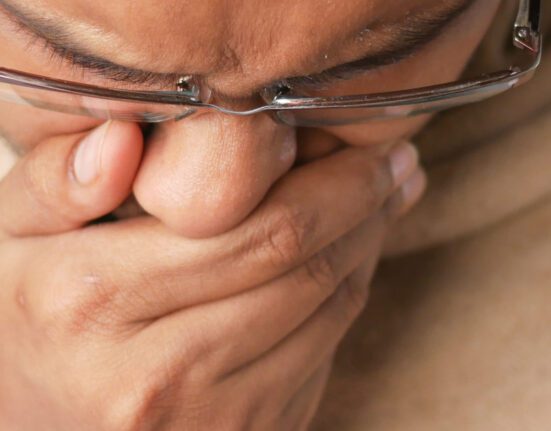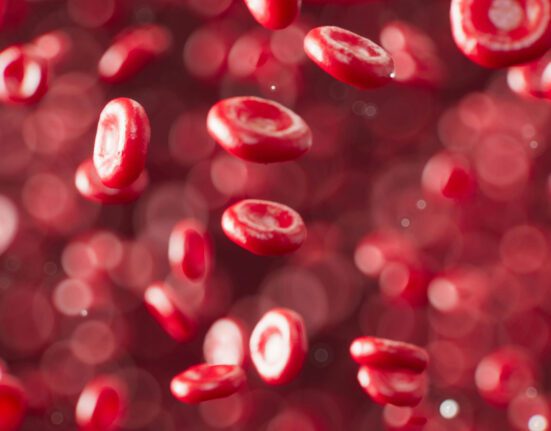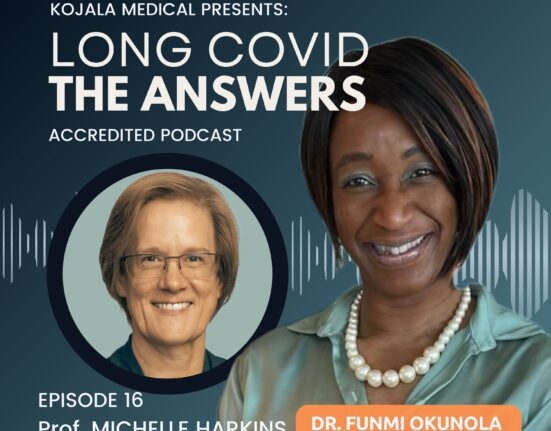Sinusitis. What is it?

What it is:
Sinus issues in Long COVID encompass a range of symptoms affecting the nasal passages and sinuses. These symptoms can include:
- Sinusitis: Inflammation of the sinuses, leading to symptoms such as facial pain or pressure, nasal congestion, post-nasal drip, and a reduced sense of smell (anosmia) or taste (ageusia).
- Nasal Congestion: Blockage or obstruction in the nasal passages, making breathing through the nose difficult and causing discomfort.
- Post-nasal Drip: Excessive mucus production that drips down the back of the throat, leading to throat irritation, coughing, or a sensation of a lump in the throat.
- Facial Pressure: A feeling of fullness or pressure in the face, particularly around the eyes, cheeks, and forehead, which may worsen when bending forward.
- Headaches: Sinus-related headaches can occur due to inflammation and pressure buildup in the sinuses, often felt as a dull, throbbing pain in the forehead, cheeks, or around the eyes.
These sinus-related symptoms can vary in severity and may persist for an extended period in individuals experiencing Long COVID. They can significantly impact daily activities, sleep quality, and overall well-being.
Who Gets it?
Sinus issues in Long COVID can affect individuals of all ages and COVID-19 severity levels. They may occur as a persistent symptom even in individuals who had mild initial respiratory symptoms during their COVID-19 infection. The prevalence of sinus issues in Long COVID highlights the diverse and complex nature of post-COVID symptoms.
Typical Symptoms
Typical symptoms of sinus issues in Long COVID include:
- Nasal congestion or blockage
- Post-nasal drip
- Facial pressure or pain, especially around the eyes, cheeks, and forehead
- Reduced sense of smell (anosmia) or taste (ageusia)
- Throat irritation or coughing due to post-nasal drip
- Sinus-related headaches, often felt as pressure or pain in the face or forehead
These symptoms can vary in intensity and may persist for weeks to months after the acute phase of COVID-19 has resolved.
Key Points
- Sinus issues in Long COVID encompass symptoms such as sinusitis, nasal congestion, post-nasal drip, facial pressure, and headaches.
- These symptoms can persist for an extended period and significantly impact daily life and well-being.
- Sinus issues can occur regardless of the severity of the initial COVID-19 respiratory symptoms.
- Managing sinus issues in Long COVID may require a comprehensive approach that includes medical assessment, specialist referral, self-management strategies, and support networks.
Long Covid The Answers
In Long COVID, sinus issues like congestion, post-nasal drip, and facial pressure can persist, impacting daily life. Relief strategies include medical assessment, nasal irrigation, steam inhalation, medications like decongestants or corticosteroids, hydration, warm compress, and lifestyle adjustments.
Relief:
- Medical Assessment: Seek a thorough medical assessment by a healthcare professional, such as an Ear, Nose, and Throat (ENT) specialist or a primary care provider familiar with Long COVID. They can evaluate your symptoms, perform diagnostic tests if necessary, and recommend appropriate treatment.
- Nasal Irrigation: Use saline nasal sprays or nasal irrigation systems (e.g., Neti pot) to help clear mucus and reduce nasal congestion. These can be used regularly to keep the nasal passages moist and clear.
- Steam Inhalation: Inhale steam from a bowl of hot water or a steam inhaler to help loosen mucus and relieve congestion. Adding essential oils like eucalyptus or peppermint can enhance the soothing effect.
- Decongestant Medications: Over-the-counter decongestant medications, such as pseudoephedrine or oxymetazoline nasal sprays, can help reduce nasal congestion temporarily. However, use them cautiously and follow the instructions, as prolonged use can lead to rebound congestion.
- Nasal Corticosteroids: Prescription nasal corticosteroid sprays, like fluticasone or budesonide, can help reduce inflammation in the nasal passages and alleviate symptoms like congestion and post-nasal drip. Use them as directed by your healthcare provider.
- Antihistamines: If allergies contribute to your sinus symptoms, antihistamine medications can help reduce allergic reactions and relieve symptoms like sneezing, itching, and nasal congestion. Choose non-drowsy formulations if you need to remain alert during the day.
- Hydration: Drink plenty of fluids, such as water, herbal teas, and clear broths, to stay hydrated and thin mucus secretions. Adequate hydration can help ease congestion and promote overall sinus health.
- Warm Compress: Apply a warm compress, such as a warm, damp towel, to your face to help soothe facial pressure and pain associated with sinusitis. Be cautious with heat to avoid burns.
- Humidifier: Use a humidifier in your home, especially in bedrooms during sleep, to add moisture to the air and prevent dryness in the nasal passages. Clean the humidifier regularly to avoid mold and bacteria buildup.
- Avoid Triggers: Identify and avoid triggers that exacerbate your sinus symptoms, such as exposure to allergens, irritants like cigarette smoke, strong odors, or changes in weather conditions.
- Lifestyle Modifications: Practice good hygiene, including regular handwashing, to reduce the risk of respiratory infections that can worsen sinus symptoms. Additionally, maintain a healthy diet, exercise regularly, manage stress effectively, and get adequate rest to support overall immune function and sinus health.
- Consultation with Specialists: If sinus issues persist or worsen despite self-care measures, consult with specialists such as ENT doctors or allergists for further evaluation and management options, which may include prescription medications, allergy testing, or sinus imaging studies.
These relief strategies can be tailored to your specific symptoms and medical history. Always consult with healthcare professionals for personalized guidance and treatment recommendations.
Credible sources of information:
- American Medical Association (AMA)
- British Medical Journal (BMJ)
- American Thoracic Society (ATS)
- European Respiratory Society (ERS)
- Chartered Society of Physiotherapy (CSP)
- American Physical Therapy Association (APTA)
- National Health Service (NHS) in the UK
- Centers for Disease Control and Prevention (CDC) in the United States
- World Health Organization (WHO)
- National Institute for Health and Care Excellence (NICE) in the UK
- Food and Drug Administration (FDA) in the United States








